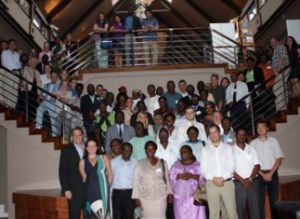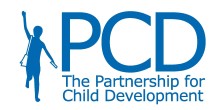School Feeding-Contributing to Sustainable Development in Africa
The Yamoussoukro Colloquium offered a chance to study in-depth the Ivoirian school feeding model, which centres on working with women’s farming groups to improve local production, increase community buy-in and provide food for the school canteens. The meeting brought together national and international partners to discuss the remarkable successes and lesson learned in 20 years of experience in Cote d’Ivoire.
The primary lessons are that:
- Involving the community at all levels results in buy-in and sustainability;
- Supporting communities to increase their agricultural inputs results in real gains. Communities now provide 23% of the food used in school feeding in Cote d’Ivoire;
- Working with women’s groups allows for the maximum impact among rural farmers (of whom 82% are women) and improves the lifestyle of women by providing household income (in one village 15% of household income came from women in the group that supported school feeding);
- There is need for a strong Francophone network to capitalize on information sharing and lessons learned to disseminate programme successes.


